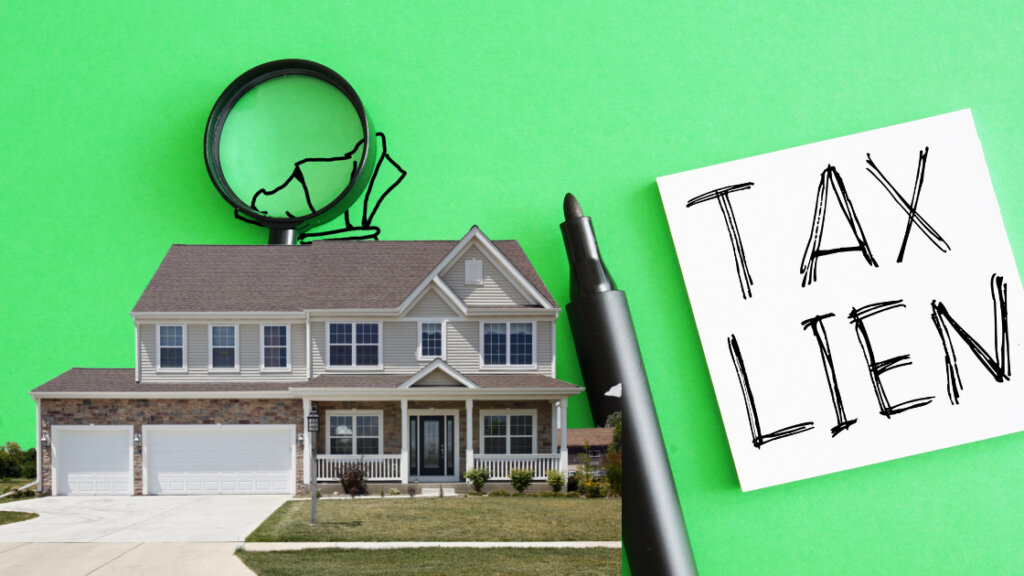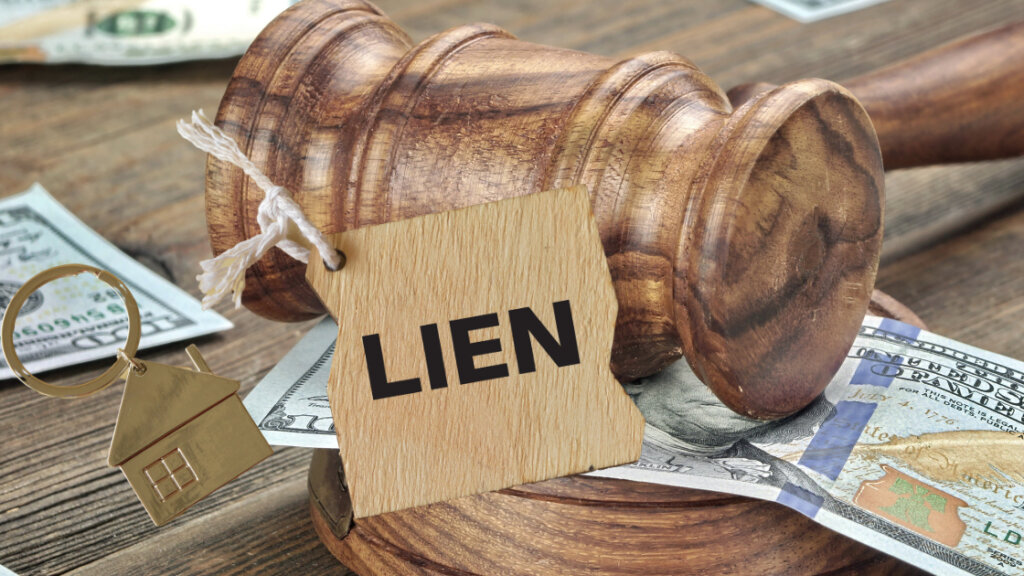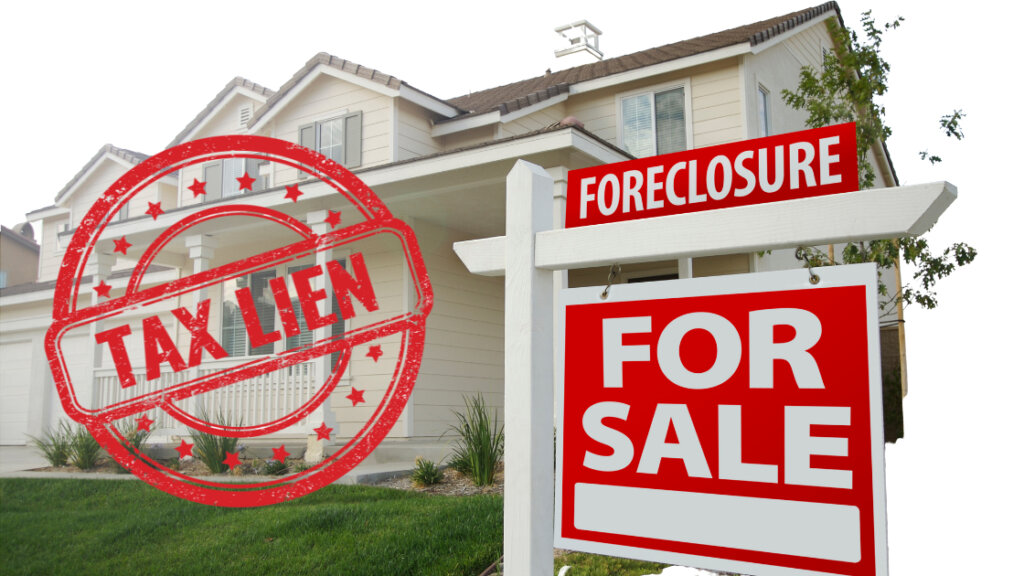
Dealing with liens on a house can be a daunting task for any homeowner. Liens can arise due to various reasons such as unpaid taxes, outstanding loans, or even unpaid child support. In this blog, we will help you understand what liens are and how they affect homeownership. We will also provide you with tips and tricks to deal with different types of liens, including tax liens, mechanics liens, judgment liens, and more. Moreover, we will discuss how you can avoid liens in the first place and the consequences of not paying them off in time. Whether you’re facing foreclosure or considering selling your home to pay off your debts, this guide is here to help you navigate the complex world of liens on a house.
What is a Property Lien?
A lien on a house is when someone has a legal right to claim your property due to an unpaid debt. Creditors, contractors, and the government can all place liens. It’s essential to address them quickly and work with a professional such as an attorney or real estate agent to resolve them.
Understanding Lien on your House and Homeownership
If you own a home, then you need to be aware of the different types of liens that can be placed against your property. A lien is essentially a legal claim made by creditors, contractors, or the government to ensure payment for debts owed. Liens can come in various forms such as tax liens, mechanic’s liens, or judgment liens. It’s important to act quickly if you have a lien on your property and work with professionals such as attorneys or real estate agents to resolve it. Negotiation with lien holders and staying up-to-date on taxes are some ways that homeowners can prevent liens in the first place.
Ways to Deal with Liens on a House

Identifying any liens on a property before closing a sale is one of the best ways to deal with a lien on a house. Negotiating with lien holders, such as new owners, is another way to reduce or eliminate the lien amount. Seeking legal advice becomes necessary when dealing with complex liens or disputes with lien holders, such as involuntary liens. To avoid future liens, ensure that bills are paid on time and documents are filed properly. By doing this, potential buyers can have confidence in obtaining a clear title and will not face any issues related to outstanding liens.
Types of Liens That Affect Homeowners
Liens that affect homeowners are complex legal claims that range from unpaid property taxes to judgments against borrowers. It’s crucial to first understand how liens work before dealing with them. Identifying any outstanding liens on the property through a title search or county recorder’s office is essential before buying or refinancing a home. Negotiating with lien holders or consulting a real estate attorney can go a long way in resolving disputes and avoiding foreclosure. Staying current on taxes and working with reputable contractors are the best ways to prevent involuntary liens like mechanics liens while maintaining clear title ownership. Title insurance can also protect against any undiscovered liens or title defects that may arise in the future.
Recognizing Mortgage Liens on a Home
A mortgage lien is a type of legal claim placed on real property by a mortgage lender. This lien gives the lender the right to sell the property if the borrower fails to pay back their loan. Before buying a home, it’s best to conduct a thorough title search for potential liens by checking public records or consulting with a title company. If you already own your home and have an outstanding lien against it, make sure to address it immediately to avoid foreclosure and protect your credit score. You may be able to negotiate with your mortgage lender or consider other options like refinancing or selling your property.
What You Need to Know About Tax Liens

A tax lien is a legal claim made by the government against a property due to unpaid property taxes. Failure to address it promptly can lead to severe consequences such as foreclosure and damage to the homeowner’s credit score. Negotiation with the government for a payment plan or requesting a property tax lien discharge is the best way forward. This will ensure that you keep your homeowner status intact and avoid any potential buyer hiccups in buying your property.
How Mechanics Liens Can Affect Homeowners
A homeowner can face legal claims like mechanics liens filed by contractors or suppliers who have not received payments for their work on a property. Resolving this unpaid debt is crucial as it may lead to forced property sales to pay off the lien. Prior research and keeping records can help in avoiding such situations. For instance, one must ensure that the contractor has obtained all necessary permits and licenses before starting any work. Negotiating with the lienholder could also help come up with a payment plan or settle the debt.
Dealing with IRS Tax Liens on Your Property
Dealing with an IRS tax lien on your property can be overwhelming. Unpaid taxes can result in a federal tax lien on your real estate collateral. Avoiding it can only lead you to face foreclosure or seizure of your property by the federal government. The best way to resolve this is by negotiating a payment plan with the IRS or trying to prove that the debt has already been paid or wrongly filed for a lien release. Seeking advice from an experienced real estate attorney can save you from outstanding liens and ensure a clear title before closing costs.
Managing Judgment Liens on Your Home
Managing judgment liens on your home requires careful consideration and planning. These legal claims can be detrimental to your property’s value and prevent you from selling or refinancing it in the future. The best way to deal with a judgment lien is by negotiating a settlement with the lienholder or filing for bankruptcy if necessary. Waiting for the lien to expire is also an option if you have time on your side. Before making any decisions, it’s crucial to seek advice from a real estate attorney and financial advisor who can help you determine the best course of action. By taking proactive steps and managing judgment liens effectively, you can ensure that you have a clear title and avoid any potential problems with income taxes down the road.
Navigating Child Support and Alimony Liens
Navigating child support and alimony liens when dealing ways to deal with a lien on a house involves understanding the relevant state laws and potential impacts on selling or refinancing your home. Homeowners should consult with an attorney or financial advisor to find solutions for resolving such liens. Judgment liens are placed on properties when homeowners owe back child support or alimony payments; thus addressing them is vital as they could affect one’s property rights. Understanding local statutes of limitations, legal claims, and collateral matters would also be helpful. Consulting real estate agents together with title companies to conduct title searches before buying homes is another best way of avoiding any outstanding liens.
Dealing with Liens and Foreclosure

Navigating through lien issues such as foreclosure or judgment liens can be overwhelming for homeowners. Proper identification of parties involved and exploring feasible options with creditors and lenders like negotiating with a lienholder or payment plan can help ease the process. Seeking legal counsel from a real estate attorney in dealing with mechanics liens is also beneficial. Also ensuring that you avoid debt accumulation and stay current on mortgage payments can prevent future liens. Working closely with lenders, title companies, and real estate attorneys will not only guarantee a clear title but also ensure a hassle-free home purchase or refinance.
Filing for Bankruptcy to Remove Liens
Removing liens from your property can be challenging, but there are ways to deal with a lien on a house. One potential solution is filing for bankruptcy which may result in the discharge of certain types of liens. Consulting a bankruptcy attorney is recommended before deciding on this option as it may also have negative consequences such as an impact on your credit score and future financial options. It’s essential to explore alternative options such as negotiating with creditors or selling the property. Remember that filing for bankruptcy doesn’t always guarantee the removal of all liens on your property.
Tips for Removing HOA Liens on Your Home
If you’re looking for ways to deal with liens on your house, one option is removing an HOA lien. While it can be complicated, there are steps you can take to remove an HOA lien from your property. Start by reviewing your HOA’s bylaws and regulations to determine if the lien is valid. Then, negotiate with the HOA for a payment plan or settlement agreement. It’s also important to consult with a real estate attorney who can help navigate any legal issues surrounding this type of lien removal.
What Happens if You Can’t Pay a Lien?
Failing to pay a lien could lead to legal repercussions such as wage garnishment, property seizure, or lawsuit. It is advisable to communicate with the creditor and try to negotiate a payment plan or settlement. Seeking guidance from a legal or financial professional can also aid in dealing with liens on your debtor property.
Working with Creditors and Lenders to Manage Liens
Managing liens on a house can be complicated and stressful. To deal with liens effectively, it’s crucial to know the different types of liens that may attach to your property. Creditors and lenders need to be contacted in case of any outstanding liabilities. Seeking the assistance of a real estate attorney can help navigate the complex legal system surrounding liens. Working with a title company or an escrow agent can ensure that all liens are satisfactorily resolved before selling or refinancing your property. Staying up-to-date with HOA fees and property taxes helps prevent liens from attaching to your home.
How to Avoid Liens in the First Place
To steer clear of liens on your property, there are various proactive measures that you can adopt. Conducting a thorough title search before making a purchase can help you evade any existing liens. Making timely bill payments will also prevent creditors from putting a lien against your home. Paying contractors and suppliers in full will save you from mechanics’ liens. By utilizing an escrow service during home sales or purchases, you can guarantee that all payments have been made before passing ownership.
Tips for Preventing Liens During Homeownership
During homeownership, maintaining timely payments of bills and taxes, keeping accurate financial records, and open communication with creditors are Ways to Deal with Liens on a House. It’s vital to understand the terms of agreements before signing them, consulting professionals like lawyers or accountants. Regularly look up for potential liens or claims against the property helps address them promptly. Conducting a title search before buying property ensures avoiding existing liens. Additionally, paying contractors/suppliers in full & using an escrow service while buying/selling properties can prevent mechanic’s liens.
Understanding Liens and Filing for Divorce
Filing for divorce can create challenges when it comes to liens on a house. It’s crucial to understand the difference between marital and non-marital liens, as well as how they impact property ownership during divorce proceedings. One option for dealing with liens during divorce is negotiating a payment plan or selling the home to pay off any outstanding debts. When buying or selling a property, consider conducting a title search to ensure there are no existing liens. A real estate attorney can help navigate any legal requirements related to liens and address potential lien concerns.
Should You Sell Your Home to Pay Off Liens?
Selling your home to pay off liens should not be a hasty decision. Before taking action, consider alternatives such as negotiating with the lien holder or seeking legal advice. Selling your home could have consequences, including loss of equity and disturbance of living arrangements. Consult with financial or legal experts before proceeding.

Additional Resources for Homeowners Dealing with Liens

Homeowners dealing with a lien on their house have various options for obtaining additional resources for assistance. It is advisable to research online resources about different types of liens and consult with professionals such as real estate attorneys or financial advisors for guidance before proceeding. Negotiating with lien holders to settle debts and remove liens from your property is another approach you could take. Explore government programs and resources that assist homeowners facing liens on their properties while simultaneously being proactive in managing their finances and staying current on mortgage payments to avoid future liens on their property. Remember to prioritize your liens while navigating the legal process as necessary; however, selling your home should be approached carefully as it may result in losing equity.
The cost of paying off liens on a house will vary depending on the amount owed and any interest or penalties that have accrued. It’s best to consult with a real estate attorney or financial advisor to determine the exact amount and negotiate payment terms.
How do I deal with a liens on my house?
To deal with a lien on your house, you should first determine the type of lien and the amount owed. Then, negotiate with the lien holder to find a solution that works for both parties. Options include paying off the debt, negotiating a payment plan, or disputing the validity of the lien.
How much money will it cost me to pay off the liens on my house?
The cost to pay off liens on a house varies depending on the amount owed and the terms of the lien. It’s important to consult with a real estate attorney or financial advisor to determine the total cost and best course of action.
Conclusion
Dealing with liens can be a complicated and stressful process for homeowners. Understanding the different types of liens and their implications is crucial to protecting your investment. From recognizing mortgage liens to managing judgment liens, there are steps you can take to address these issues head-on. If you’re struggling with a lien on your property, it’s essential to work with creditors and lenders to find a solution that works for everyone involved. And if you’re looking for ways to prevent liens from occurring in the first place, our blog offers some helpful tips and resources. For more information on dealing with liens on your house, check out our additional resources for homeowners.

Contact Us
We would love to hear from you! Please fill out this form and we will get in touch with you shortly.

